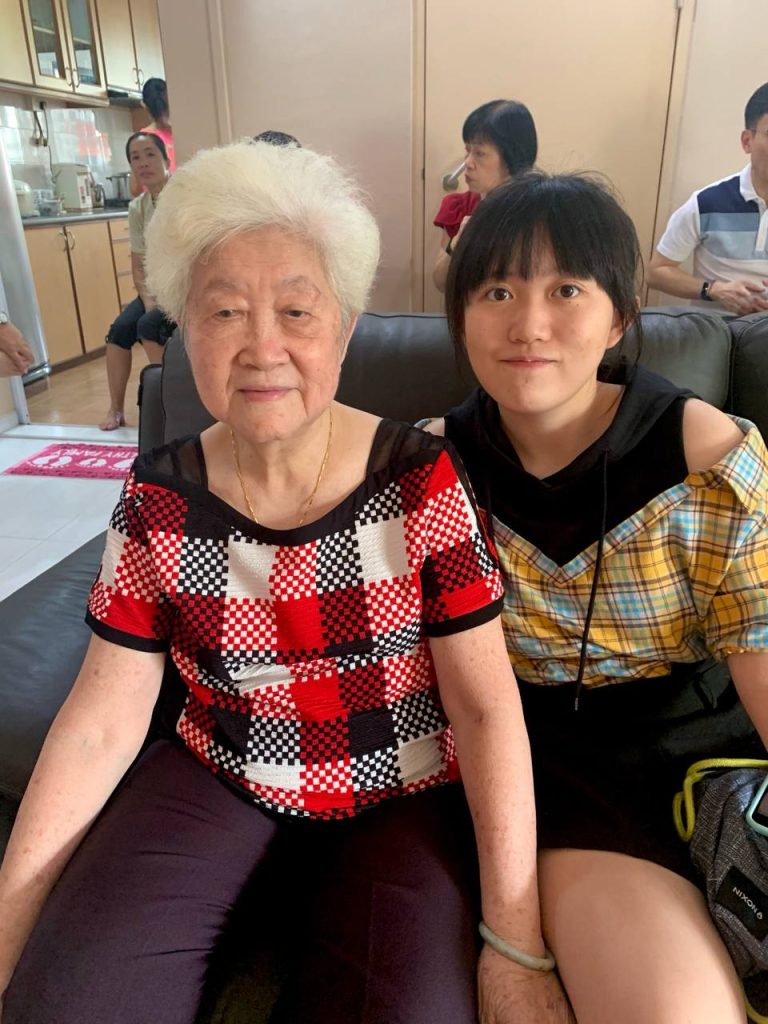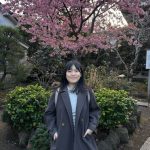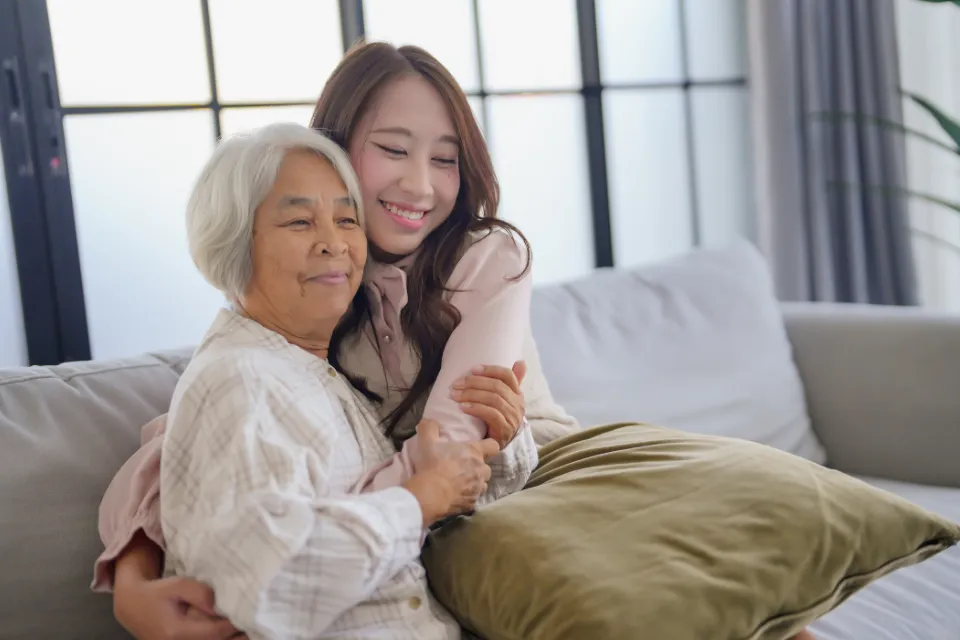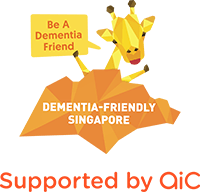Velda, whose grandmother lived with dementia, reflects on her journey with her grandmother’s dementia diagnosis– and how it reshaped Velda’s understanding of ageing, memory, and love. Here is her story.
The scent of pig organ soup never fails to take me back to my childhood, when my grandmother, or ‘ah ma’ would make it whenever we visited. I can still picture myself sitting at the dining table, surrounded by cousins, uncles and aunties slurping my soup down, one bowl after another as laughter filled her 4-room flat. The taste of her food was the glue of our family; it was a taste that meant comfort, warmth, and love.
After my grandmother’s diagnosis in 2014, my view of family, ageing, and love were challenged in ways I never expected. The woman who had once been the pillar of strength in our family became fragile and dependent. Overnight, the familiar became uncertain, and I found myself struggling to grasp how quickly life can shift.
Before her diagnosis, ah ma (‘grandmother’ in Chinese dialect) was vibrant and full of life. She could always be seen hanging out with her friends and exercising every morning. She was a beacon of love and joy for our family. I used to visit her often, enjoying our little conversations about school and food, moments that felt endless before her diagnosis.
As she grew older, our family started bringing her along on holidays. On one trip to a rural part of China in the 2010s, she slipped and fell. Though she was not badly injured, we noticed something changed after returning home; she began to forget things — where she was, where her money was, and other small details. Concerned, we brought her to the doctor, and it was then that the word dementia became a part of our family’s vocabulary.
As the years passed, her memory slowly faded. My cousins and I got busier with school and work, and before long, I was the only one who still visited her regularly. My frequent visits were a blessing in disguise as they allowed me to be remembered as her condition progressed. It became our quiet routine sitting together and talking, even if it was the same conversation every time.

We would often cook meals together, with her still remembering the recipes whilst instructing me on what ingredients to add, and how to make the family’s favourite dishes. I learnt that it takes a small gesture to continue keeping this relationship alive even through this progressive condition.
To me, she is still my same old ah ma. Often, these moments would bring a smile to both our faces despite how tedious it seemed to onlookers. They taught me that love does not need novelty to stay alive. Sometimes it is simply showing up, repeatedly, even when nothing changes.
What Love Looks Like Now
My mother who is one of ah ma’s primary caregivers, became the backbone of our family during this time. Her strength amazed me. I noticed what sustained her most was the support she received from friends, family, and medical professionals. My mother often took the initiative in coordinating efforts to ensure my grandma got adequate care – fetching her to medical appointments, her usual daycare activities. My grandmother was fortunate to have many children, each contributing in their own way, either accompanying her to checkups, preparing meals, or visiting her often.
My mother often sought guidance from doctors and nurses to better understand the care my grandmother needed, but it was the emotional encouragement from those around her that helped her stay grounded.
Watching her balance compassion with exhaustion showed me how caregiving is not only an act of love but also of endurance and humility. She taught me that asking for help is not a sign of weakness, it is an act of courage that allows us to care better for others and for ourselves.
Through my ah ma’s diagnosis, I learnt that love evolves. It can no longer rely only on shared memories or conversation, but must instead find expression in patience, gentleness, and presence. Her diagnosis changed my view of what it means to love someone – to love not for who they were, but for who they are, moment by moment.
Through this experience, I have come to appreciate a new form of gratitude: one that grows through caregiving and reminds me of the unwavering love and guidance I have seen.
"Dementia changes not just a person’s mind, but also everything else – their body, and their familial ties, pushing loved ones to rise to the occasion, even when you're never truly prepared."
Velda Koh
To me, dementia is a psychological warfare because it is more than just accepting the current changes, it is also about anticipating their every need and seeing into the future. Although my ah ma’s health has progressively declined, I am forever grateful to the moments I spent with her. It reminds me that life changes, memories fade, and time moves on. All I know is that the love that was once poured into a simple bowl of soup continues to nourish me, even years later.
ABOUT THE WRITER

Velda Koh
Velda is a marketing executive who enjoys bringing ideas, stories, and policies to life. In her free time, she enjoys playing musical instruments, travelling, and finding good cafes.




